Are you looking for an exciting and inspiring activity to work on with your students during the International Women's Month? Your students will embark on a journey of discovery as they explore the incredible contributions of outstanding women in different fields!
This innovative interactive notebook will challenge your students to research, learn, and celebrate the lasting impact of these pioneering women in the world of science and innovation.
What is included?
- Interactive notebook format with guiding questions.
- Larger format for bulletin boards with guiding questions.
- Interactive notebook format with blank spaces for students to include the information you want.
- Larger format for making bulletin boards with blank spaces.
- Simple format
How to Use this Resource:
1. Interactive Notebook: Use the interactive notebook for each of your students to research a prominent woman. Upon completing their research, they can share about these women in a gallery walk.
2. Collaborative Mural: Transform the interactive notebook into a collaborative project to create a mural in the classroom. Each student can have a section of the mural dedicated to a woman in STEM, using their interactive notebook to gather information and create visual elements. By combining all the sections, an impactful mural is formed that celebrates the diversity of prominent women in STEM.
BONUS!
For each woman, you will find various posters that include:
- Her name
- A short biography
- Two famous quotes
One idea I have implemented is to organize a bulletin board with the biographies of the women. This way, your students can approach, read, and choose the woman they want to research.
Included Characters:
-
Althea Gibson – The first African-American tennis player to win a Grand Slam tournament, paving the way for diversity in sports.
-
Ann Bancroft – Explorer and educator, the first woman to ski to both the North and South Poles.
-
Celia Cruz – Queen of salsa, influenced Latin music with her vibrant voice and style.
-
Clara Barton – Founder of the American Red Cross, helped save many lives during war and disasters.
-
Elizabeth Cady Stanton – Leader of the women’s rights movement in the U.S., fought for women’s suffrage.
-
Ellen Ochoa – First Hispanic woman to travel to space, inspiring future generations in science and technology.
-
Florence Nightingale – Founder of modern nursing, revolutionized medical care in hospitals.
-
France Córdova – Astrophysicist and leader in scientific institutions, promoted the advancement of science in the U.S.
-
Frida Kahlo – Iconic Mexican painter, reflected her life and culture in unique and symbolic works.
-
Helen Rodríguez Trías – Physician and activist, fought for women’s and children’s healthcare rights.
-
Indira Gandhi – First woman to serve as Prime Minister of India, transforming her country through political and economic reforms.
-
Irma Rangel – First Latina elected to the Texas House of Representatives, advocated for education and civil rights.
-
Jane Goodall – Primatologist and conservationist, revolutionized the study of chimpanzees and wildlife conservation.
-
Leymah Gbowee – Liberian activist who led a peaceful movement to end the civil war in her country.
-
Mae Jemison – First African-American woman to travel to space, inspiring future generations in science.
-
Margaret Thatcher – First woman to serve as Prime Minister of the United Kingdom, known as the “Iron Lady” for her strong leadership.
-
Marie Curie – Pioneering scientist, discovered radioactivity and won two Nobel Prizes in different disciplines.
-
Mother Teresa – Missionary and humanitarian, dedicated her life to helping the most vulnerable around the world.
-
Oprah Winfrey – Host, entrepreneur, and philanthropist, one of the most influential women in media.
-
Rigoberta Menchú – Guatemalan Indigenous activist and Nobel Peace Prize laureate for her fight for human rights.
-
Sonia Sotomayor – First Latina Supreme Court Justice in the U.S., advocate for justice and equality.
-
Wangari Maathai – Environmental activist and Nobel Peace Prize laureate, founder of the Green Belt Movement for reforestation in Africa.
If you liked this resource and it was useful for your class and your students, follow my store for more products.
Don't forget to RATE this product!
Are you looking for this resource in Spanish? Here is the link
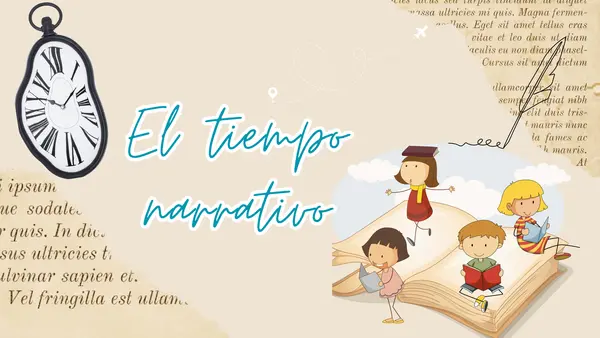
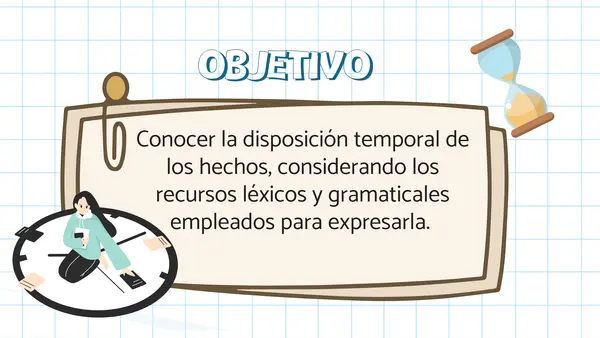
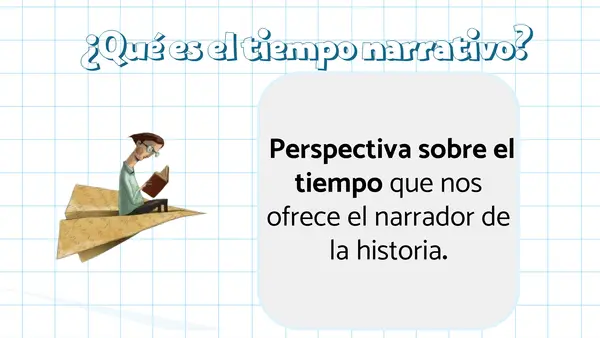
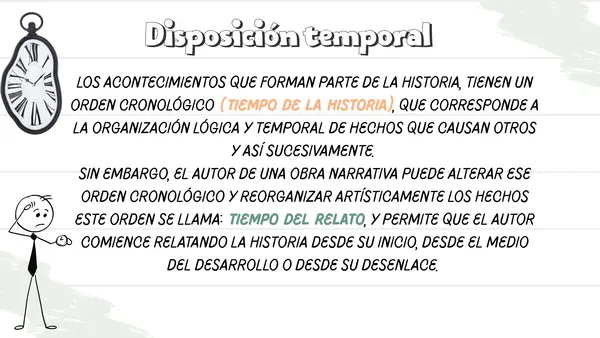
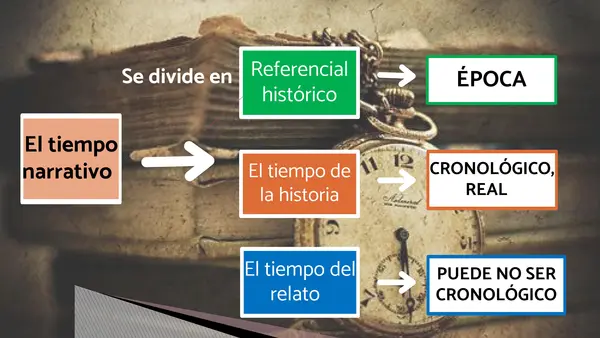
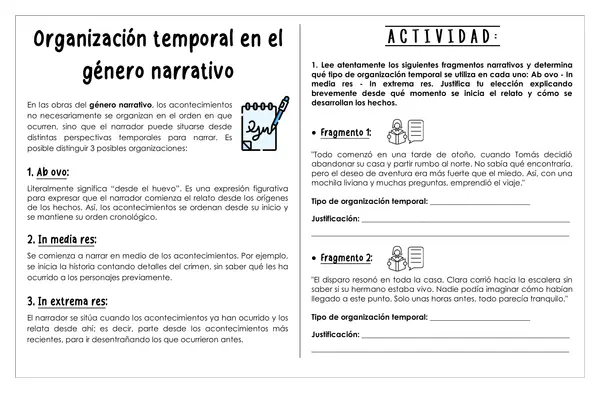
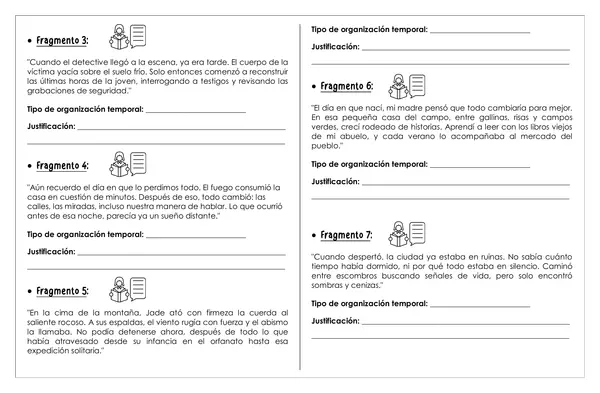
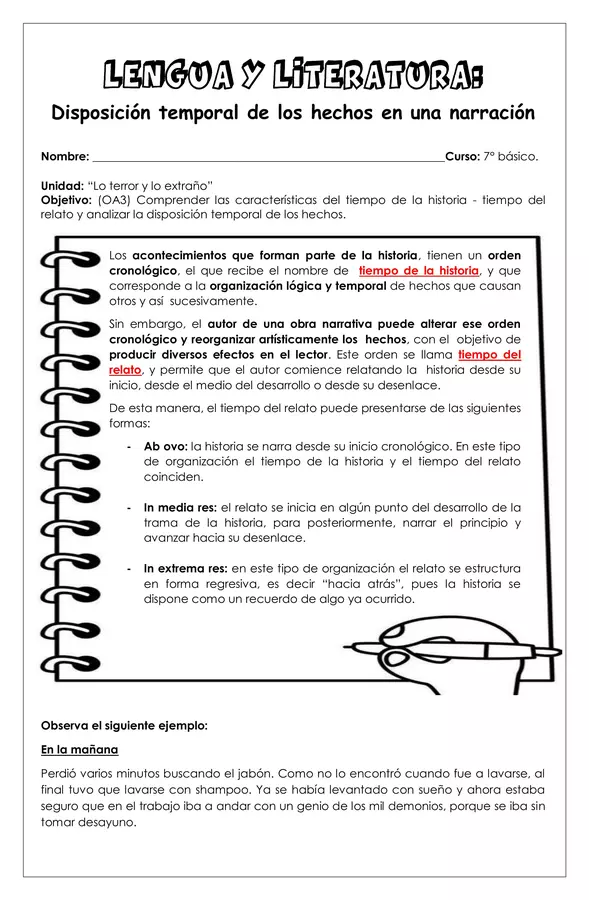
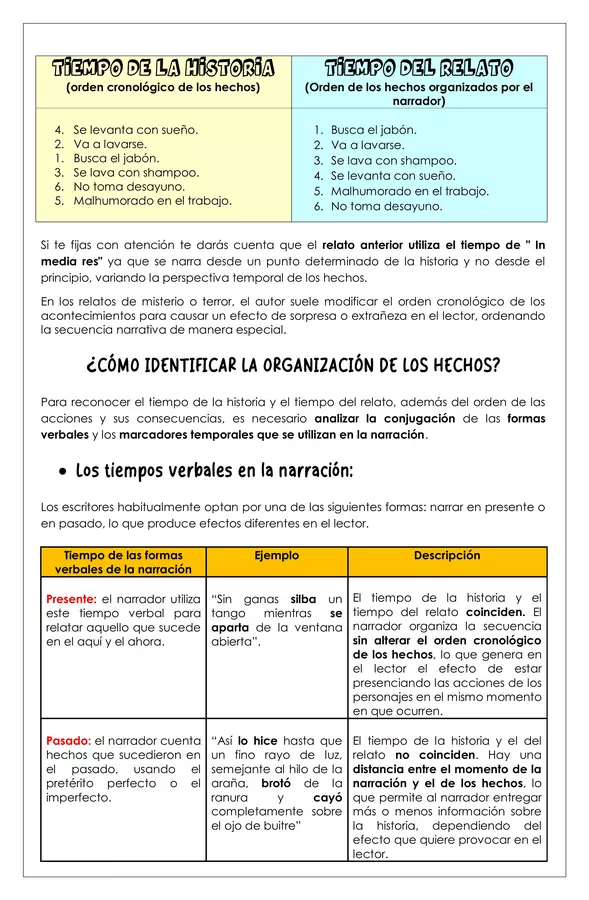
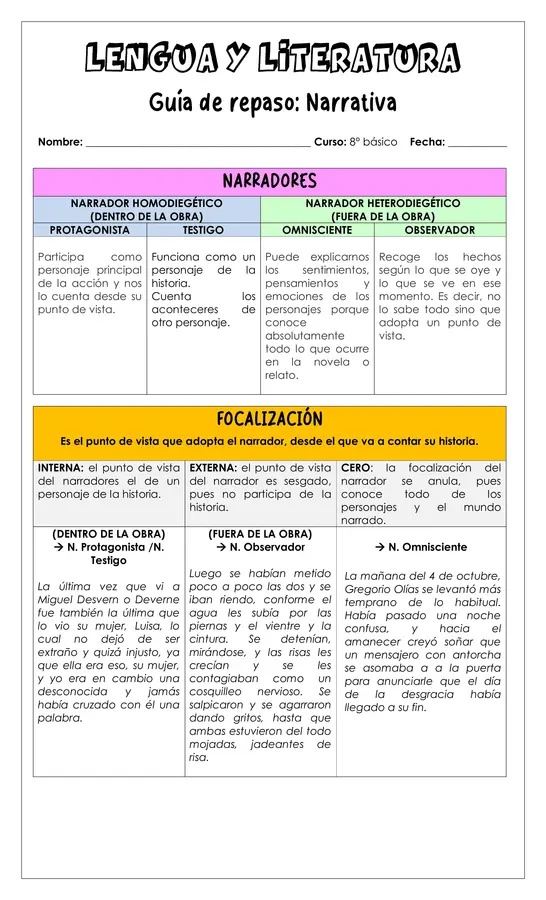
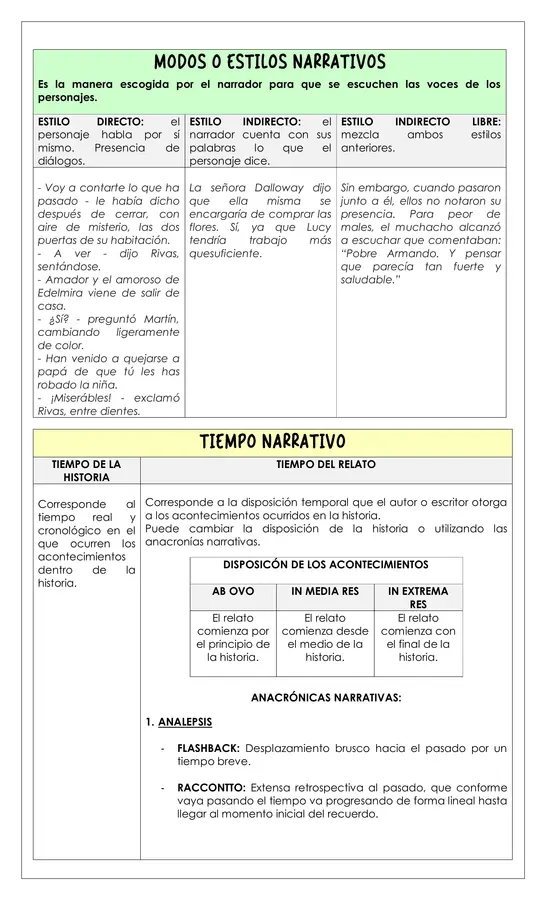
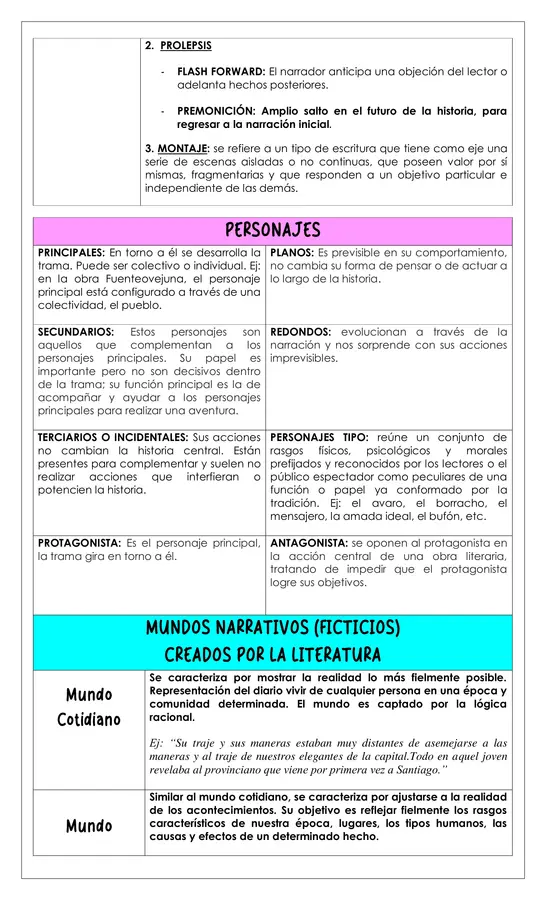
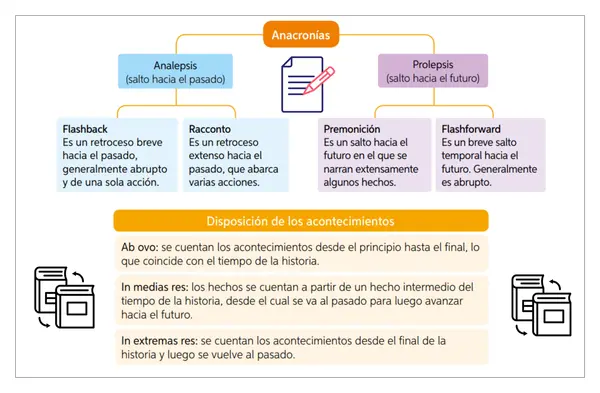
![Género narrativo [narrador, ambiente, tiempo]](https://profe.social/rails/active_storage/representations/proxy/eyJfcmFpbHMiOnsibWVzc2FnZSI6IkJBaHBBOTBTRlE9PSIsImV4cCI6bnVsbCwicHVyIjoiYmxvYl9pZCJ9fQ==--4c51d26adda9bd2e0c903cba70ee4f46085956f6/eyJfcmFpbHMiOnsibWVzc2FnZSI6IkJBaDdDVG9MWm05eWJXRjBTU0lJYW5CbkJqb0dSVlE2RkhKbGMybDZaVjkwYjE5c2FXMXBkRnNIYVFKWUFta0NoQU02QzJ4dllXUmxjbnNHT2dsd1lXZGxhUUE2REdOdmJuWmxjblE2Q1hkbFluQT0iLCJleHAiOm51bGwsInB1ciI6InZhcmlhdGlvbiJ9fQ==--deb6266f7a80aa2aa4c4b1597082904ce6899af1/preview-46727-01.jpg)
![Género narrativo [narrador, ambiente, tiempo]](https://profe.social/rails/active_storage/representations/proxy/eyJfcmFpbHMiOnsibWVzc2FnZSI6IkJBaHBBOTRTRlE9PSIsImV4cCI6bnVsbCwicHVyIjoiYmxvYl9pZCJ9fQ==--9b6bc909327594fb75e185553f0f894b8e00924f/eyJfcmFpbHMiOnsibWVzc2FnZSI6IkJBaDdDVG9MWm05eWJXRjBTU0lJYW5CbkJqb0dSVlE2RkhKbGMybDZaVjkwYjE5c2FXMXBkRnNIYVFKWUFta0NoQU02QzJ4dllXUmxjbnNHT2dsd1lXZGxhUUE2REdOdmJuWmxjblE2Q1hkbFluQT0iLCJleHAiOm51bGwsInB1ciI6InZhcmlhdGlvbiJ9fQ==--deb6266f7a80aa2aa4c4b1597082904ce6899af1/preview-46727-02.jpg)
![Género narrativo [narrador, ambiente, tiempo]](https://profe.social/rails/active_storage/representations/proxy/eyJfcmFpbHMiOnsibWVzc2FnZSI6IkJBaHBBOThTRlE9PSIsImV4cCI6bnVsbCwicHVyIjoiYmxvYl9pZCJ9fQ==--b8404b90d637f4fd98e9846b29086bff1df634d5/eyJfcmFpbHMiOnsibWVzc2FnZSI6IkJBaDdDVG9MWm05eWJXRjBTU0lJYW5CbkJqb0dSVlE2RkhKbGMybDZaVjkwYjE5c2FXMXBkRnNIYVFKWUFta0NoQU02QzJ4dllXUmxjbnNHT2dsd1lXZGxhUUE2REdOdmJuWmxjblE2Q1hkbFluQT0iLCJleHAiOm51bGwsInB1ciI6InZhcmlhdGlvbiJ9fQ==--deb6266f7a80aa2aa4c4b1597082904ce6899af1/preview-46727-03.jpg)
![Género narrativo [narrador, ambiente, tiempo]](https://profe.social/rails/active_storage/representations/proxy/eyJfcmFpbHMiOnsibWVzc2FnZSI6IkJBaHBBK0FTRlE9PSIsImV4cCI6bnVsbCwicHVyIjoiYmxvYl9pZCJ9fQ==--6758cc06952534e47862846635e09130e6f44b20/eyJfcmFpbHMiOnsibWVzc2FnZSI6IkJBaDdDVG9MWm05eWJXRjBTU0lJYW5CbkJqb0dSVlE2RkhKbGMybDZaVjkwYjE5c2FXMXBkRnNIYVFKWUFta0NoQU02QzJ4dllXUmxjbnNHT2dsd1lXZGxhUUE2REdOdmJuWmxjblE2Q1hkbFluQT0iLCJleHAiOm51bGwsInB1ciI6InZhcmlhdGlvbiJ9fQ==--deb6266f7a80aa2aa4c4b1597082904ce6899af1/preview-46727-04.jpg)
![Género narrativo [narrador, ambiente, tiempo]](https://profe.social/rails/active_storage/representations/proxy/eyJfcmFpbHMiOnsibWVzc2FnZSI6IkJBaHBBK0VTRlE9PSIsImV4cCI6bnVsbCwicHVyIjoiYmxvYl9pZCJ9fQ==--73e2f29b9a67ce5952889ba4060442a6fe5da4d7/eyJfcmFpbHMiOnsibWVzc2FnZSI6IkJBaDdDVG9MWm05eWJXRjBTU0lJYW5CbkJqb0dSVlE2RkhKbGMybDZaVjkwYjE5c2FXMXBkRnNIYVFKWUFta0NoQU02QzJ4dllXUmxjbnNHT2dsd1lXZGxhUUE2REdOdmJuWmxjblE2Q1hkbFluQT0iLCJleHAiOm51bGwsInB1ciI6InZhcmlhdGlvbiJ9fQ==--deb6266f7a80aa2aa4c4b1597082904ce6899af1/preview-46727-05.jpg)
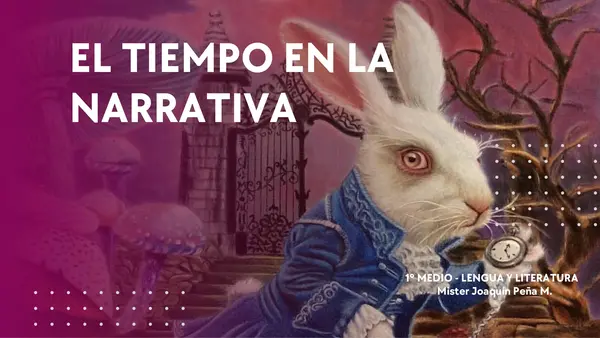
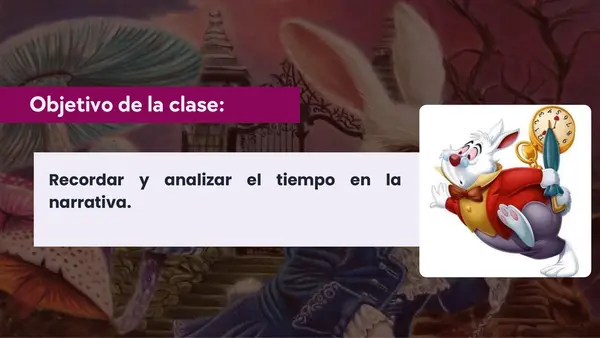
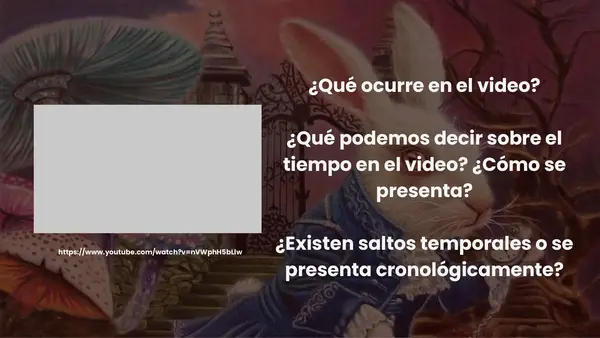
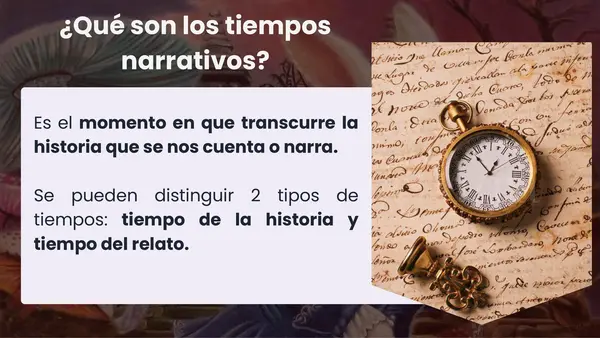
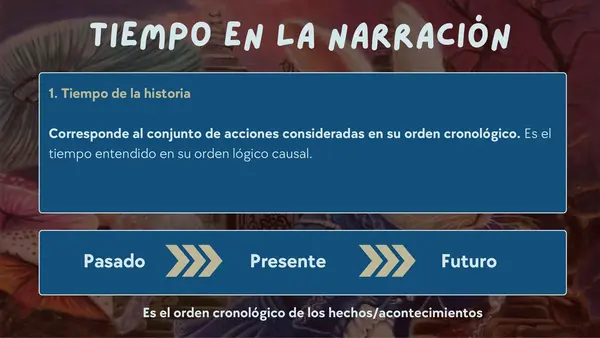
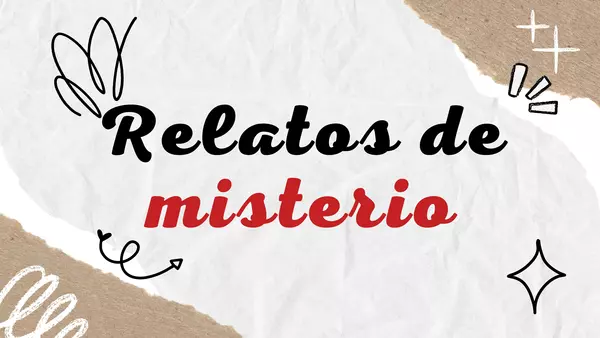
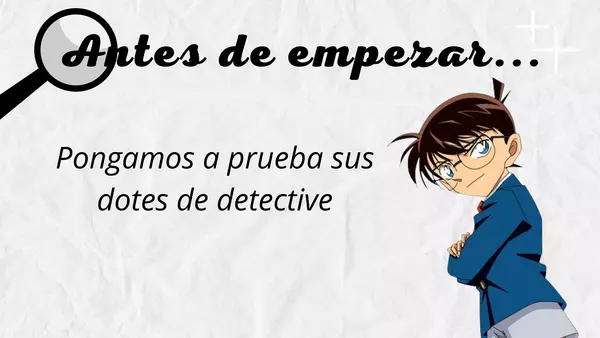

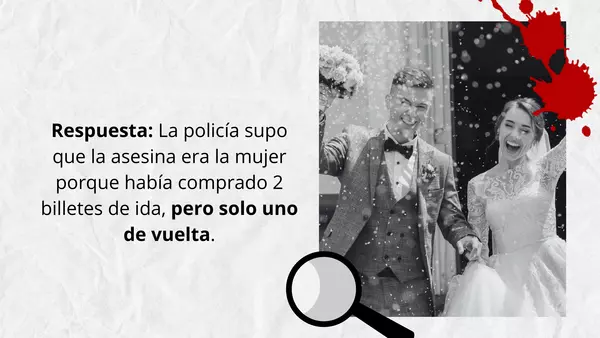



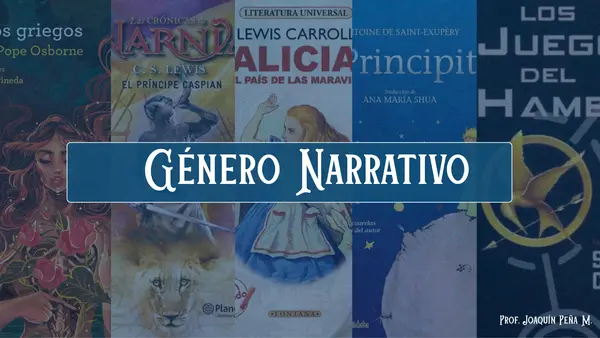
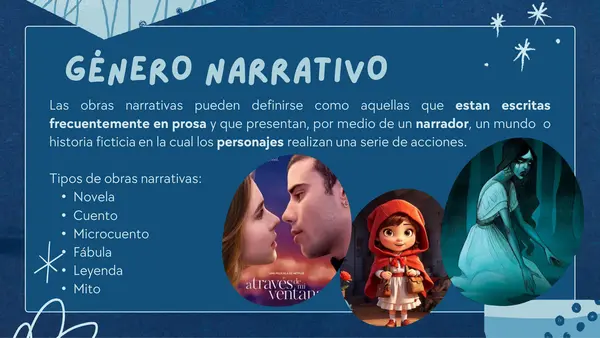
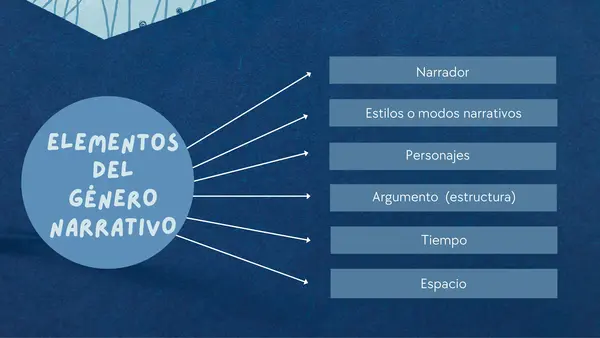
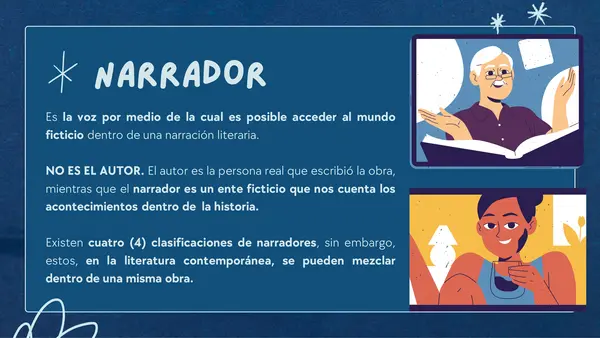
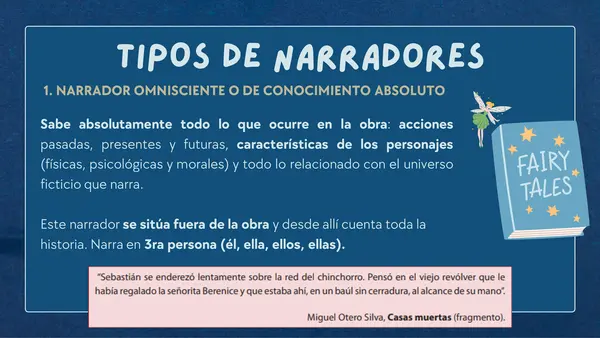


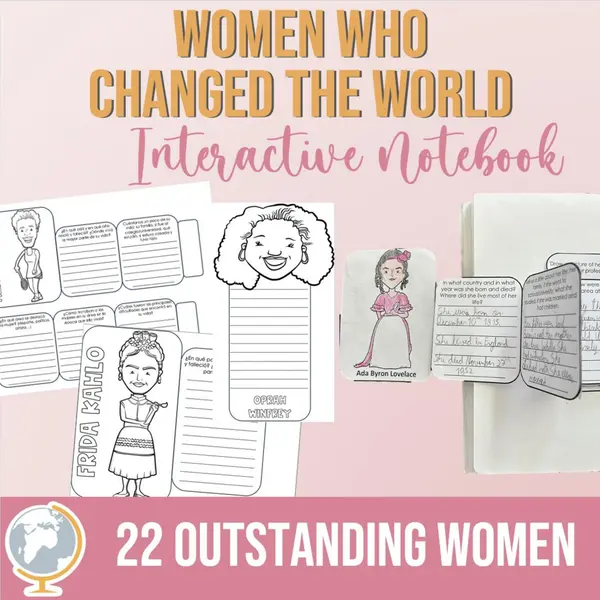
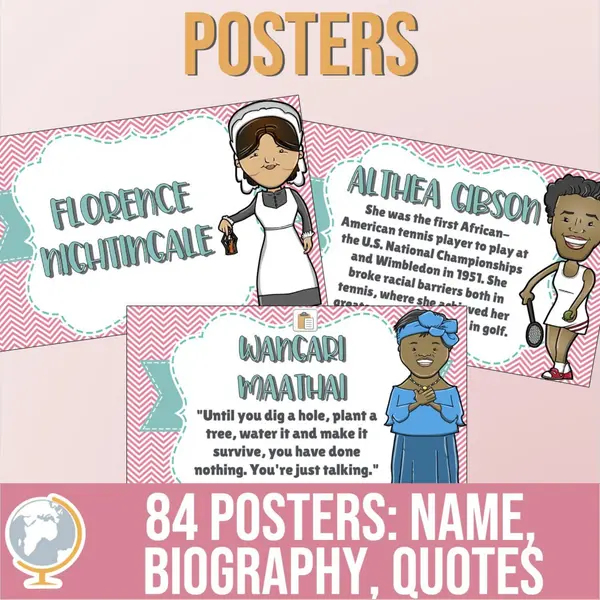
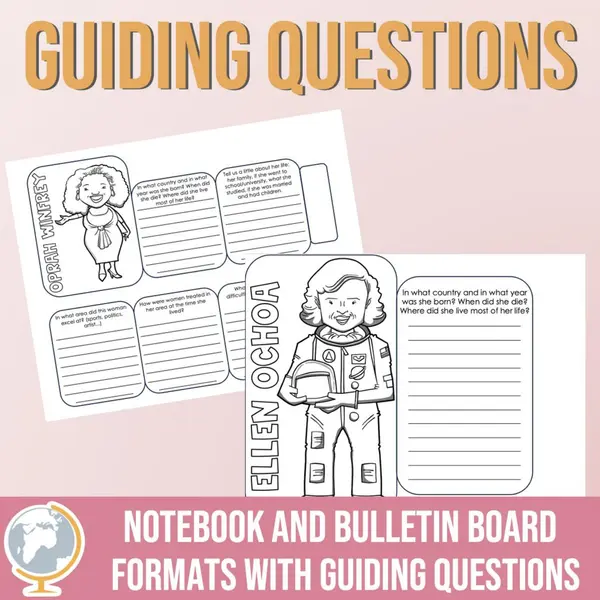
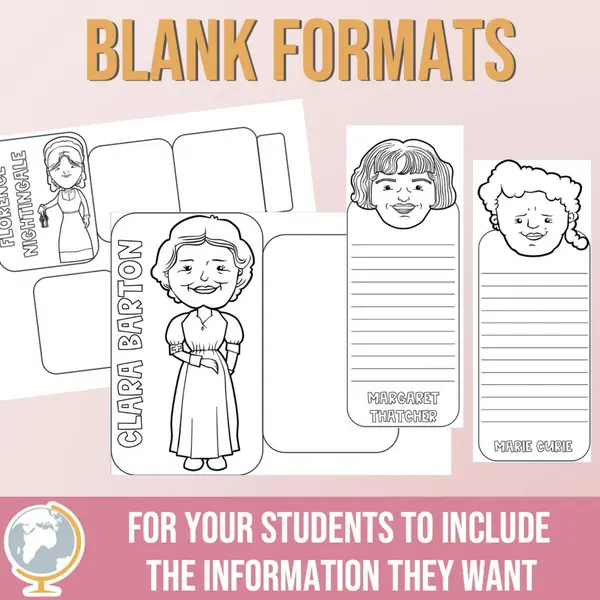
No hay comentarios aún, ¡escribe uno!